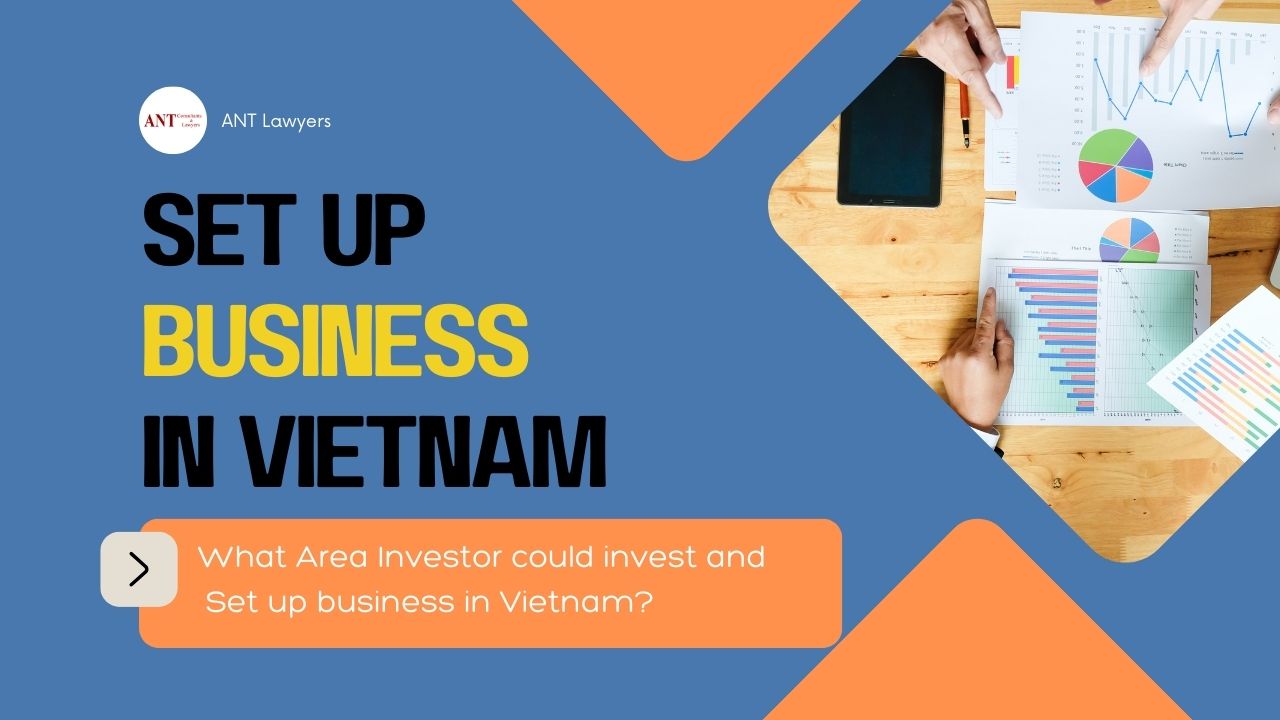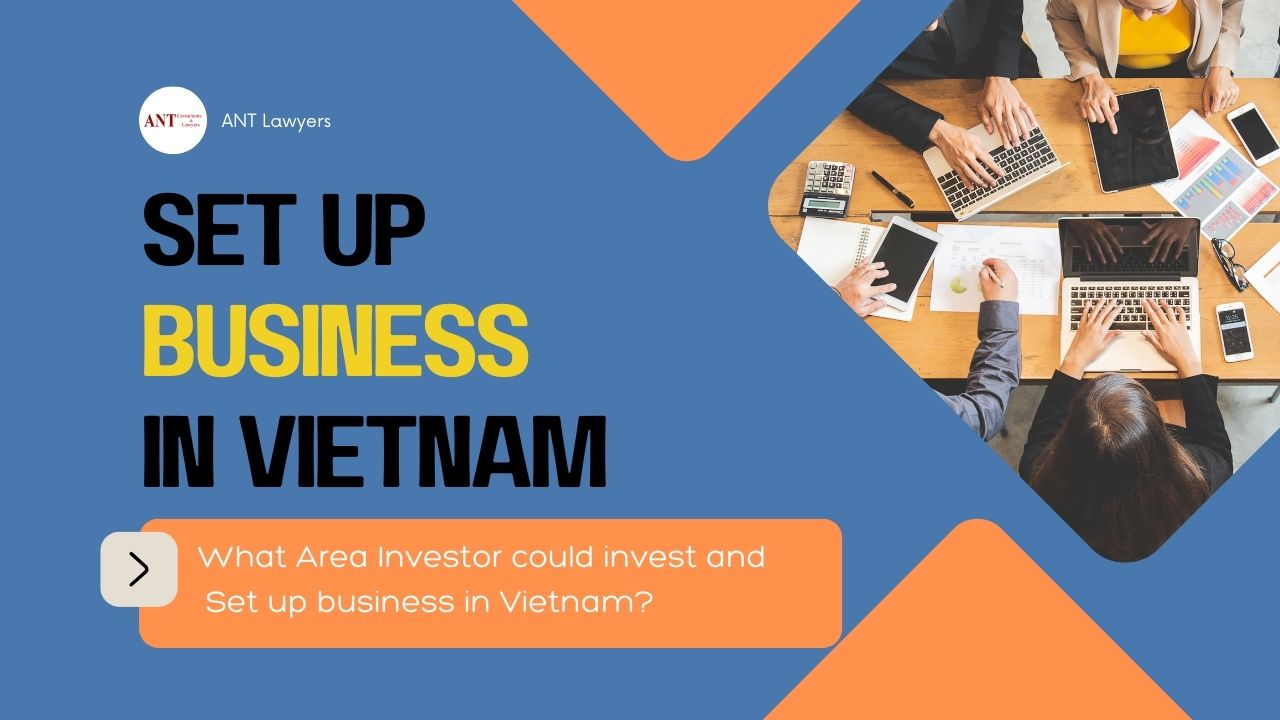After the investors undertaking market entry research in Vietnam on political, legal, business environment and finding Vietnam as an attractive destination, they would wonder how to invest in Vietnam or in more specific question: what forms of investment that the foreign investors could invest in Vietnam. Could they just set up business in Vietnam and manage themselves or could they acquire shares in a current company in Vietnam? Could they cooperate with other company whom already has establishment and experience in Vietnam without needing to set up its own business or could they partner with Vietnam government on large scale infrastructure, energy, public services projects?

The short answers to the above questions: foreign investors could invest in Vietnam through i) Investment in establishing economic organizations i.e. the investors set up companies and manage themselves; ii) Investment in the form of acquisition of shares or capital contribution to economic organizations which have already been established in Vietnam i.e. Merger & Acquisition in Vietnam; iii) Investment in the form of Public Private Partnership (PPP) contract i.e. BOT, BTO, BT…; iv) and Investment in the form of Business Cooperation Contract (BCC) contract. i.e., cooperate with other entity without setting up a new entity.
Each form of investment will be further elaborated as following:
How to set up a company in Vietnam and invest through the establishment of an economic organization?
Form of investment in the establishment of an economic organization is the use of capital by an investor to conduct the establishment of a company in Vietnam or establishment of cooperative, union of cooperatives or another organization conducting business investment activities in Vietnam. This is a form of foreign direct investment (FDI) in which investors directly invest capital and directly participate in management activities. This is the most common form of investment that drive economic growth in Vietnam over the last 20 years. As other countries in the world, Vietnam is competing with other countries globally and in the ASEAN region to attract FDI into Vietnam. The advantages Vietnam brings include reasonable low labour cost, positive change in investment policies, growing middle income consumer market, active participating in international free trade agreements with US, UK, Europe, Japan, Korea… Forms of establishment of economic organizations include two types, namely: establishment of companies in Vietnam with 100% capital from foreign investors; or establishment a joint venture company between domestic investors or the domestic government with foreign investors.
Before establishing an economic organization, a foreign investor must have an investment project and carry out procedures for issuance of an Investment Registration Certificate. At the same time, it must meet the investment conditions on the percentage of ownership of charter capital and the conditions prescribed by international treaties to which Vietnam is a contracting party. In many cases, the foreign investors are allowed to hold unlimited ownership in economic organizations, except for areas with ownership restrictions. For example, the advertising service requires foreign investors to enter into joint ventures with domestic investors; services related to agriculture, hunting and forestry only allows the capital contribution of foreign investors not to exceed 51% of the legal capital of the joint venture.
It should be noted that depending on the level of investment capital of foreign investors, the legal status of an economic organization after its establishment will be determined differently. If a foreign investor holds 51% or more of the charter capital of an economic organization after its establishment, the entity will have to carry out the procedures applicable to foreign investors. Conversely, if foreign investors hold less than 51% of the charter capital of an economic organization, the regulations applicable to economic organization after their establishment are applied as domestic investors.
How to invest in Vietnam through M&A process?
If the investors wish to enter Vietnam market without the need to establish an enterprise in Vietnam, the investors could consider buying into an established company in Vietnam i.e. buy the capital contribution of limited company, or buy the shares of joint stock company. Through this way, the investors become capital contributing members or shareholders of company. If holding more than a certain percentage ownership, the investors could try to take part in the daily management of the company to safeguard its investment or grow the company in direction it believes benefits the members or shareholders. In some areas, there are investment conditions which the foreign investors need to meet i.e., foreign ownership ratios and other conditions stated under the free trade agreements which Vietnam is a contracting member to. In some cases, the investors have to carry out legal procedures to register capital contributions, or register to acquire shares in company in Vietnam, sign capital or share purchase agreement, and seek approval from authorities for such M&A activities to record legal investment in Vietnam. It is important that, before buying into a company, the investor might need to hire a law firm in Vietnam to undertake legal due diligence for an M&A transaction.
How to make investment in the form of PPP contract?
Investment in the form of Public Private Partnership (hereinafter referred to as PPP) is a form of investment made on the basis of a project contract between a competent state agency and an investor or project enterprise in doing construction, renovation, operation, business, management of infrastructure works, provision of public services. The form of PPP is a fairly developed model and is applied by many countries to take advantage of the state and the private sector for socio-economic development. The object of the contract is usually infrastructure works which fall under the responsibility of the State in the fields of transportation, parks, electricity and energy projects, social and public infrastructure works, commercial infrastructure, economic zones, high-tech infrastructure; agriculture, etc. Therefore, the State encourages cooperation with the private sector in the form of PPP to reduce the burden as well as risks to the budget.
Investment in the form of PPP is governed by many legal documents related to the use and management of state assets, including the Law on Construction, the Law on Investment, the Law on Public Investment, the Law on Use and Management. Public property, Law on Bidding. In the near future, the PPP Law will be drafted and promulgated to focus on unified and synchronous management in one legal document. PPP contracts permitted by Vietnam include: Build – Operate – Transfer (BOT) Contracts; Build – Transfer – Operate Contract (BTO); Build – Transfer (BT) Contract; Build – Own – Operate Contract (BOO); Build – Transfer – Lease (BTL) Contract; Build – Lease – Transfer (BLT); Operation – Management (O&M) Contracts; and Mixed Contracts combining the above types of contracts. In case the investor proposes to apply a contract other than the types of contracts listed above, this contract needs to be approved by a state agency subject to review and approval by the Prime Minister.
How to make investment in the form of BCC contract in Vietnam?
Among the investment forms that investors can choose, investment in the form of business cooperation contracts is often chosen by investors because of the advantage of not needing to establish a company in Vietnam or not setting up an economic organization in Vietnam when operating a project. Business cooperation contract (BCC) is a contract signed between investors for business cooperation, profit sharing and product distribution without establishing an economic organization. The parties to the BCC contract establish a coordination committee to implement the BCC contract. The functions, tasks and powers of the coordination board shall be agreed upon by the parties. BCC contracts signed between domestic investors and foreign investors or between foreign investors must carry out procedures for issuance of an Investment Registration Certificate.
During the performance of the contract, the parties still retain their own legal status and perform their rights and obligations under the contract on their behalves. The rights and obligations of the parties are only bound together by the contract without the organizational constraints as in the form of investment to establish a new legal entity. BCC contracts are suitable for short-term projects.
About ANT Lawyers, a law firm in Vietnam
We help clients overcome cultural barriers and achieve their strategic and financial outcomes, while ensuring the best interest rate protection, risk mitigation and regulatory compliance. ANT lawyers has lawyers in Ho Chi Minh city, Hanoi, and Danang, and will help customers in doing business in Vietnam.
Let ANT Lawyers, a law firm in Vietnam help your business in Vietnam.

